March/April 2025 Our Ohio
This issue of Our Ohio highlights Ohio Farm Bureau’s programs, scholarships and other efforts to support ag education in the state and showcase career pathways in Ohio’s largest industry.
Read MoreOhio House Bill 432, sponsored by Rep. Don Jones, sets up new alternative educator preparation programs.
The growth of ag education programs in Ohio schools and a wave of teacher retirements have combined to create a shortage of licensed ag teachers in the state.
Other career-technical education programs are having similar issues, but legislation signed in early December offers new ways to bring industry professionals into the classroom.
Ohio House Bill 432, sponsored by Rep. Don Jones, sets up new alternative educator preparation programs and makes it possible for an applicant to apply directly for a career- technical workforce development education license.
Jones is a former ag teacher and recognized the need to address the shortage of qualified career-tech teachers.
“We’ve got a lot of talented people that would possibly make great teachers if we didn’t make them jump through so many hoops to be able to become a teacher,” he explained.
The legislation doesn’t lower standards for career-technical education teachers, Jones added. Instead, it opens new avenues for qualified professionals to become licensed.
The previous system required career-technical education teachers to complete a course of study through an institution of higher education. The legislation adds two alternative educator preparation programs that teachers can use to qualify for career-technical education licenses. These programs will be aligned with standards set by the Ohio Department of Education and Workforce.
Besides helping industry professionals bring their experience to classrooms, the new licensing rules will make it easier for existing teachers to shift to career-technical education subjects. Jones offered an example from his own experience. He earned a degree in special education, but when he shifted to teaching agriculture, he had to take two more years of classes. “I basically took classes that I’d already taken to become an ag teacher.”

Ohio Farm Bureau supported the bill as a way to increase the number of teachers with industry and technical experience. Evan Callicoat, director of state policy for Ohio Farm Bureau, said members have been particularly concerned about finding qualified teachers to maintain ag education programs. “From our perspective this is going to help with the career-tech teacher shortage.”
Students can benefit greatly from teachers who want to share their own career experience in technical fields, Callicoat pointed out. However, getting those second-career professionals licensed to teach has been a barrier. “It’s hard to expect them to go back to full-on college to get a teaching degree,” he explained.
The one-size-fits-all approach to teacher training didn’t fit the needs or preferences of people who were choosing a career change to help students, said Stephanie Jolliff, an agricultural education teacher and FFA advisor at Ridgemont Local Schools. “In education we ask for differentiation of kids every day, but we never allowed for differentiation of teachers.”
The Ohio Department of Education and Workforce has been encouraging high schools and career centers to expand programs that provide students with industry-recognized credentials.
Former Lt. Gov. Jon Husted led the DeWine administration’s support for the programs as a way to promote workforce readiness within the state.
These credentials verify students’ qualifications with certificates, certifications or licenses issued by third-party industry or government organizations. The credentials help students show they have skill sets employers are looking for, explained Jolliff, who teaches agriculture at Ridgemont Local Schools. “It’s a great marketing tool for kids and it’s a great marketing tool for programs.”
The Department of Education and Workforce has established more than 100 industry-recognized credentials related to agricultural and environmental systems. Three credential programs are offered in cooperation with the Ohio Department of Agriculture: commercial pesticide applicator licenses, private pesticide applicator licenses and ODA agricultural commodity tester certification.
Other credentials are available through industry groups. For instance, the National Association of Veterinary Technicians in America coordinates the Approved Veterinary Assistant designation, Ducks Unlimited offers an Ecology Conservation and Management Certification, and the Ohio AgriBusiness Association offers the Agribusiness and Production Systems Certification.
Photos by Dave Liggett and submitted
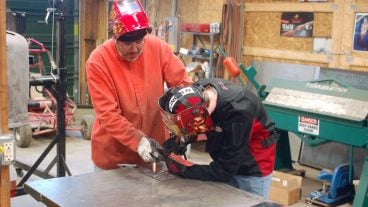
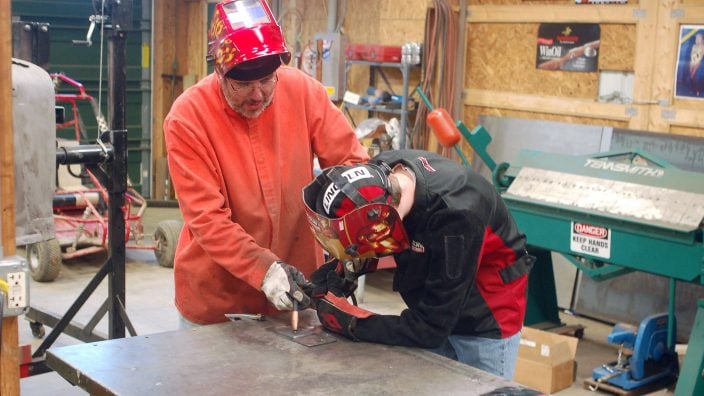
This issue of Our Ohio highlights Ohio Farm Bureau’s programs, scholarships and other efforts to support ag education in the state and showcase career pathways in Ohio’s largest industry.
Read More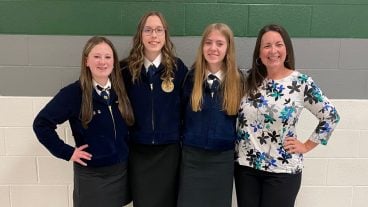
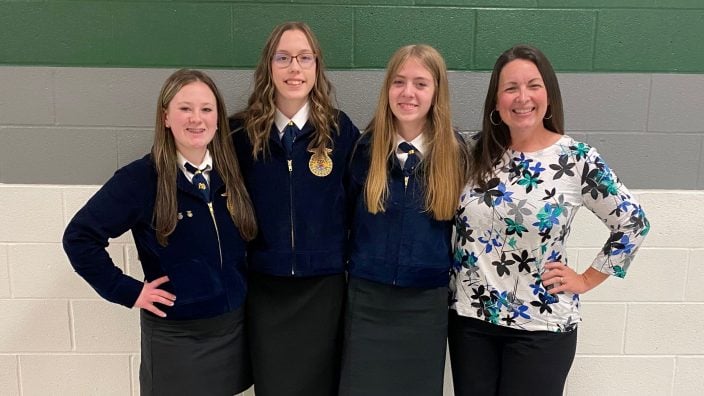
Through established policy, all county Farm Bureaus in Ohio provide and support ag literacy programs to enhance students’ knowledge about agriculture.
Read More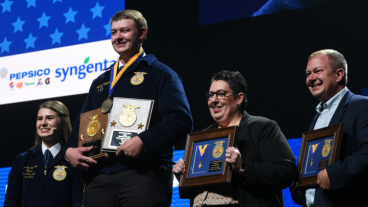
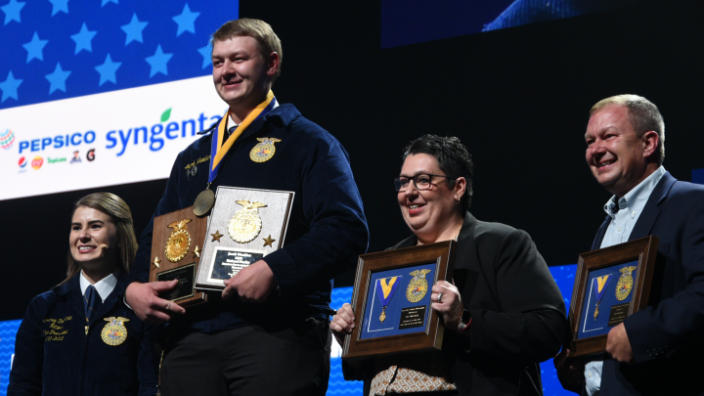
The Golden Owl Award recognizes outstanding agriculture educators who make an impact in their local communities.
Read More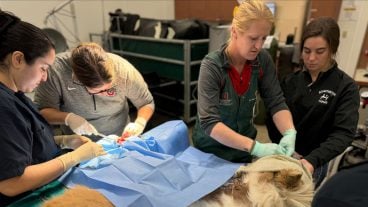
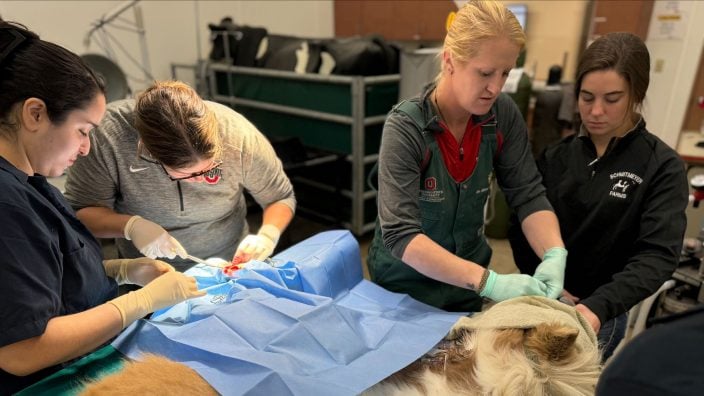
A combination of factors have caused a vet shortage in Ohio, particularly for the specialty of working with livestock.
Read More
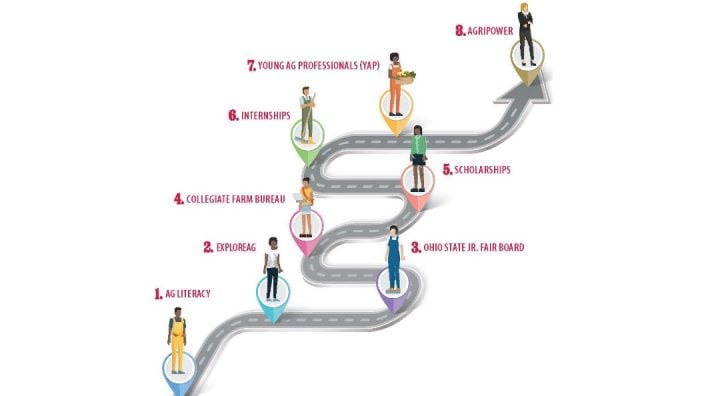
Ohio Farm Bureau is ensuring that more young people, who may have never considered a profession in agriculture, see that opportunities abound in Ohio’s largest industry.
Read More

The award is for students who are pursuing a certification, accreditation or a degree related to welding. Apply by March 31.
Read More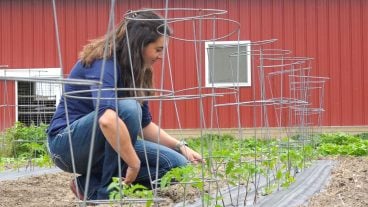
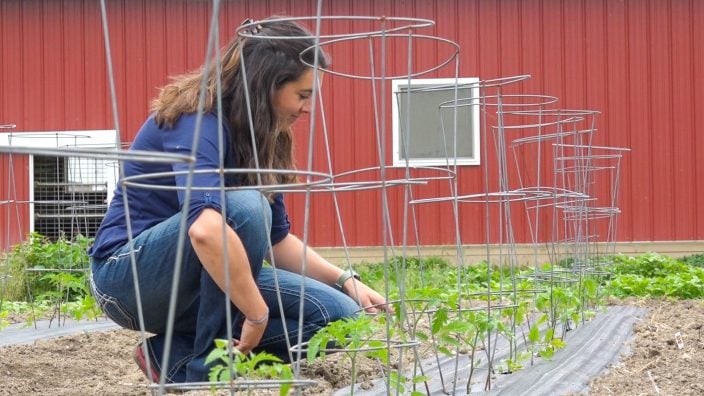
What career advice would you give to the next generation?
Read More

Ohio Farm Bureau’s signature ag literacy and workforce development program offers free week, multiday and daylong immersion programs for high school students. Apply by June 13.
Read More

Ohio House Bill 432, sponsored by Rep. Don Jones, sets up new alternative educator preparation programs.
Read More
